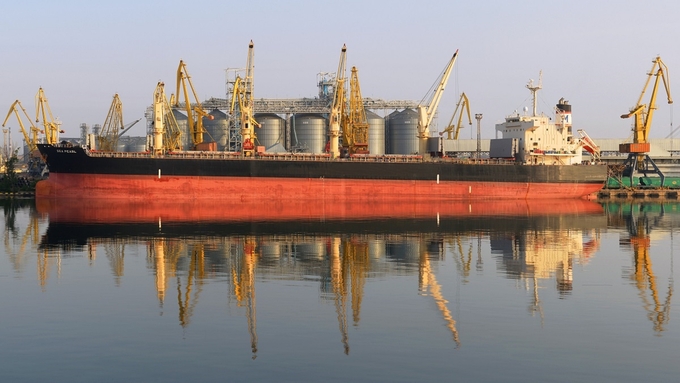
The perfect storm of crises hitting the world has strong trade dimensions, hence trade solutions must be at the heart of global efforts to respond to the challenges, UNCTAD Secretary-General Rebeca Grynspan said on 13 October.
The combined effects of the COVID-19 pandemic, the climate emergency and the war in Ukraine have accelerated a global cost-of-living crisis that could plunge tens of millions more people across the world into hunger and poverty this year.
Rising trade costs, especially in maritime transport, have contributed to soaring food and energy prices, which have hit record levels this year.
UNCTAD research shows, for example, that logistics costs alone accounted for at least half of the rise in food prices witnessed at the beginning of 2022.
Trade restrictions, which now cover about 10% of all calories traded worldwide, have limited global supplies.
And since Europe now has to import gas on ships instead of through pipes, changes in trade are also affecting the natural gas market.
“If the problem has a trade dimension, then the solution must also have a trade dimension,” Ms. Grynspan said as she opened an UNCTAD side event at the 77th session of the United Nations Economic and Financial Committee.
Shifts in geopolitics are outpacing trade logistics
Ms. Grynspan said the gas example highlights how trade logistics are struggling to keep up with shifts in geopolitics.
“It takes a day for a gas pipeline to stop flowing. But it takes much longer to build a replacement, be it in the form of LNG terminals, LNG ships, or new secondary pipelines,” she said, adding that the same is true for any trade route and commodity.
“Value chains are like a forest. They can be destroyed in minutes but take longer to grow.”
The power of trade in times of crisis
Ms. Grynspan said the UN-backed Black Sea Grain Initiative signed in July 2022 to resume exports of Ukrainian grain via the Black Sea amid the ongoing war has shown the power of trade in times of crisis.
As of 12 October, the total tonnage of grain and other foodstuffs exported through the initiative had surpassed 7 million metric tons.
“The opening of the Black Sea grain corridor, as well as the effort to bring food and fertilizers from Russia to the global markets, has presided over a six-month consecutive decline in the FAO Food Price Index,” she said, adding that the initiative’s effect began before it was signed, because of the expectation that it would be signed.
“In a context where trade is very uncertain, signals matter very much,” she said.
Since every percentage increase in the price of food can push 10 million people into poverty – according to World Bank estimates – “the initiative has had a tremendous welfare effect,” Ms. Grynspan said.
“By unblocking just one trade route, we have avoided over a hundred million people from falling into poverty,” she said.
Ms. Grynspan called for the renewal of the initiative, which expires next month.
“The private sector is anxious about the looming deadline,” she said. “When there is no clarity, no one knows what is going to happen, and speculation and hoarding take over.”
Five other key trade actions needed
In addition to the initiative, Ms. Grynspan highlighted five other trade solutions needed to counter the current crises.
First, she said, trade restrictions from global suppliers should cease.
Second, governments around the globe need to manage demand and avoid a scramble for commodities, especially energy.
Third, Ms. Grynspan called on all countries to facilitate fertilizer exports, so farmers everywhere have enough to plant the harvest needed to feed people next year.
Fourth, efforts must be made to shorten supply chains, particularly for food. This includes fostering regional supply chains, she said.
Finally, the UNCTAD chief called for multilateral and system solutions, asking decision-makers to maintain a long-term perspective while taking short-term actions.
“We are living today the consequences of not having taken the right decisions before,” she said. “Let's not make the same mistake again.”
Source: UNCTAD

















